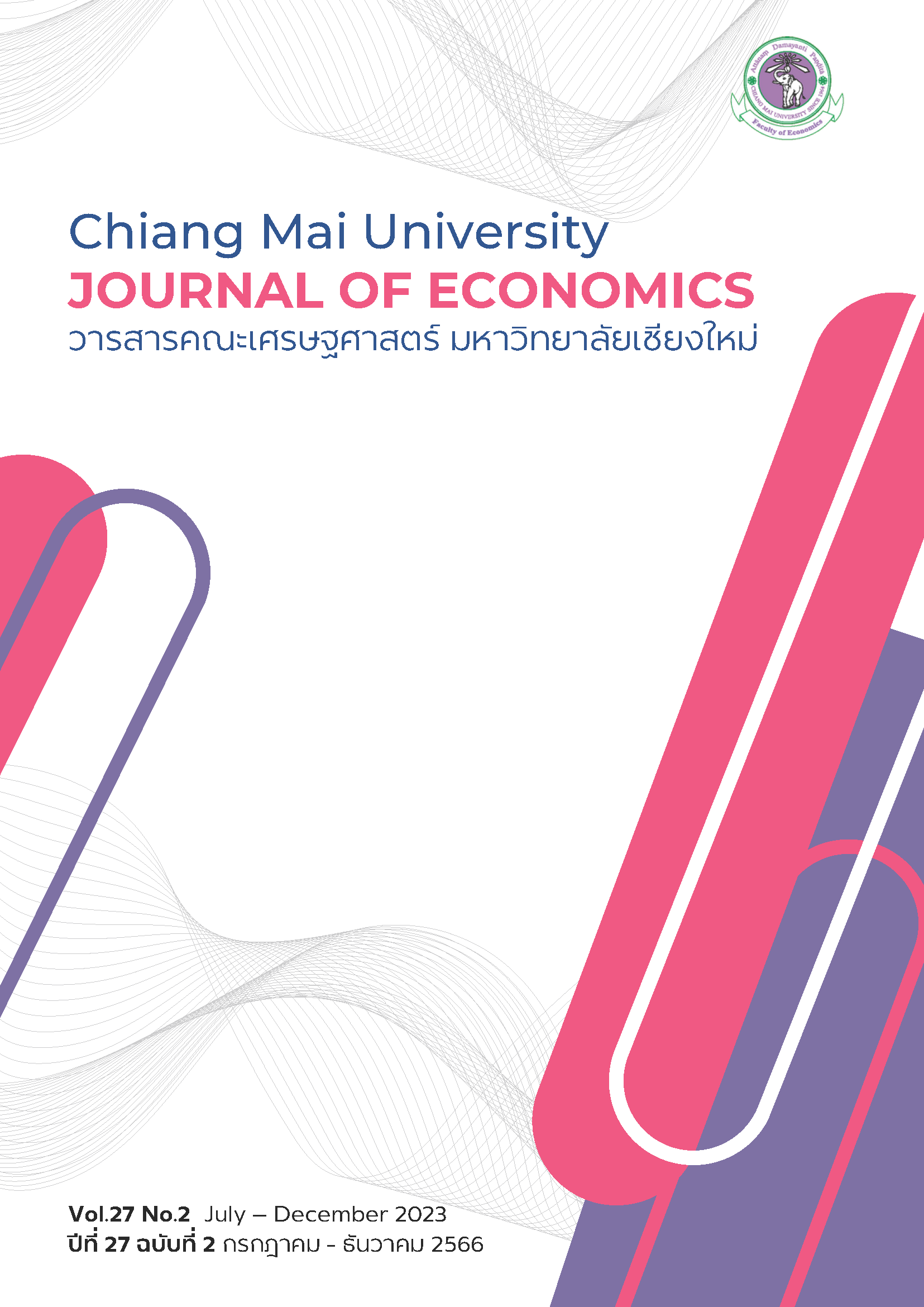Exploring Generalized Trust: A Multilevel and Cross-Country Analysis
Keywords:
Interpersonal Trust, Multilevel Model, Security, Voluntary MembershipAbstract
This paper aims to investigate the determinants of general trust by utilizing cross-country data from the World Value Survey waves 6 to 8. The results indicate that a multilevel model is suitable for examining trust in this context. The findings of this study reveal that individuals who participate in voluntary memberships, feel secure in their neighborhoods, and report satisfaction with their life and financial status tend to exhibit higher levels of trust compared to the reference groups. Additionally, the analysis highlights the significant relationship of contextual-level variables, indicating that societies characterized by greater ethnic diversity tend to have lower levels of trust. These findings provide insights for the development of trust-enhancing policies by promoting community security and encouraging social engagement through voluntary membership associations.
References
Algan, Y., & Cahuc, P. (2010). Inherited trust and growth. American Economic Review, 100(5), 2060-2092. https://doi.org/10.1257/aer.100.5.2060
Bargain, O., & Aminjonov, U. (2020). Trust and compliance to public health policies in times of COVID-19. Journal of Public Economics, 192, 1-13.
Delhey, J., & Newton, K. (2005). Predicting Cross-National Levels of Social Trust: Global Pattern or Nordic Exceptionalism? European Sociological Review, 21(4), 311–327.
Drazanova, Lenka. 2020. Introducing the Historical Index of Ethnic Fractionalization (HIEF) Dataset: Accounting for Longitudinal Changes in Ethnic Diversity. Journal of Open Humanities Data, 6(1), p.6. DOI: http://doi.org/10.5334/johd.16
Geys, B. (2012). Association Membership and Generalized Trust: Are Connections between Associations Losing their Value? Journal of Civil Society, 8(1), 1–15.
Haerpfer, C., Inglehart, R., Moreno, A., Welzel, C., Kizilova, K., Diez-Medrano J., M. Lagos, P. Norris, E. Ponarin & B. Puranen et al. (eds.). 2020. World Values Survey: Round Seven – Country-Pooled Datafile. Madrid, Spain & Vienna, Austria: JD Systems Institute & WVSA Secretariat. doi.org/10.14281/18241.1
Helliwell, J., & Wang, S. (2011). Trust and Wellbeing. International Journal of Wellbeing, 1(1), 42-78.
Hox, J. J. (2010), Quantitative Methodology Series. Multilevel Analysis: Techniques and Applications (2nd ed), New York.
Jagodzinski, W., Duelmer, H., Inagaki, Y., & Maeda, T. (2019). General Trust in a Changing Society: The Development of Interpersonal Trust between 1978 and 2013 in Japan. Bulletin of Data Analysis of Japanese Classification Society, 8(1), 25–46.
Kwon, O. Y. (2019). Social trust: Its concepts, determinants, roles, and raising ways. In Social Trust and Economic Development. Camberley, U.K.: Edward Elgar Publishing.
Mehmetoglu, M., & Jakobsen, G. (2016). Applied statistics Using Stata: A Guide for the Social Sciences. Sage Publications.
NY: Routledge/Taylor and Francis Group
OECD. (2017). OECD Guidelines on Measuring Trust. Paris: OECD Publishing.
Park, C., & Subramanian, S. V. (2012). Voluntary Association Membership and Social Cleavages: A Micro–Macro Link in Generalized Trust. Social Forces, 90(4), 1183–1205.
Paxton, P. (2007). Association Memberships and Generalized Trust: A Multilevel Model Across 31 Countries. Social Forces, 86 (1), 47-76.
Sommet, N. and Morselli, D. (2017). Keep Calm and Learn Multilevel Logistic Modeling: A Simplified Three-Step Procedure Using Stata, R, Mplus, and SPSS. International Review of Social Psychology, 30(1), 203–218, DOI: https://doi.org/10.5334/irsp.90
Zak, P. J., & Knack, S. (2001). Trust and growth. The Economic Journal, 111(470), 295-321. https://doi.org/10.1111/1468-0297.00609
Downloads
Published
Issue
Section
License
Copyright (c) 2023 CHIANG MAI UNIVERSITY JOURNAL OF ECONOMICS

This work is licensed under a Creative Commons Attribution-NonCommercial-NoDerivatives 4.0 International License.
All opinions and contents in the CMJE are the responsibility of the author(s). Chiang Mai University Journal of Economics reserves the copyright for all published materials. Papers may not be reproduced in any form without the written permission from Chiang Mai University Journal of Economics.






